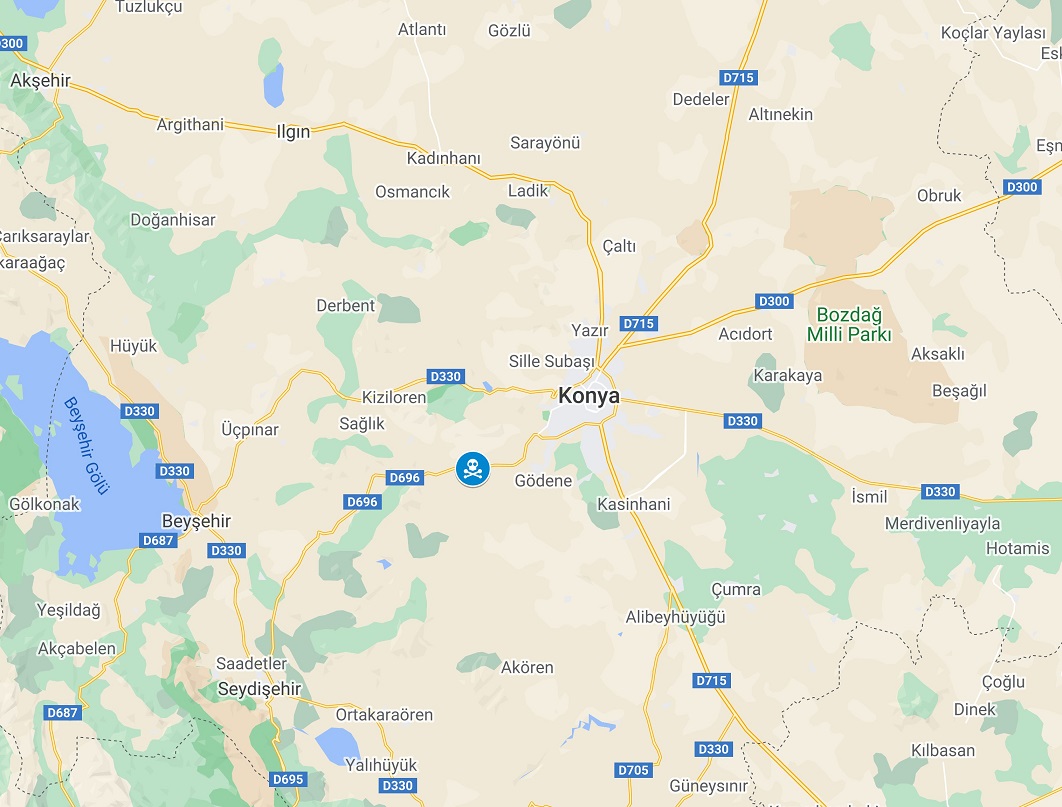1.2K
A weekly brief of events occurred in the Kurdistan regions of Iran, Iraq, Syria, and Turkey.
Iran
- The Iranian regime arrested a number of Kurdish activists in an attempt to preempt anti-government protests last week. On Thursday, Iranian authorities detained two Kurdish brothers named Osman and Shaysta Muradian in Sanandaj. Furthermore, Iranian intelligence officers (Ettela’at) seized four people in Bokan, including two female activists named Azima Naseri and Kazha Ameni. At the same time, Iranian authorities arrested Assad Alaie and Fuad Habibi in Divandareh (Diwandara), Rizgar Alianawa, Ahmad Suna, and Kawa Sulimanpour in Mehabad, and Salam Kurda in Oshnavieh (Shinno). Ettela’at often detains activists for weeks before handing them over to the Iranian judicial system.
- Iranian border guards wounded a Kurdish border porter (Kolbar) named Rasoul Malawi near Baneh. Concurrently, the Kurdistan Human Rights Association (KMMK) reported Iranian security forces arrested five Kurdish businesspeople from Saqqez.
Iraq
- ISIS (Da’esh) terrorists continued their sabotage campaign targeting the electrical infrastructure in the “Disputed Territories” and disabled at least a dozen electricity pylons last week. Daesh’s attacks on Iraq’s electricity sector are intended to stoke unrest during the country’s hottest months, divert security forces from counter-Da’esh operations and lure them into ambushes. That said, security forces in Kirkuk announced the arrest of several Da’esh terrorists who were involved with the July 21 suicide attack in Baghdad’s Sadr City.
- Turkey’s ongoing invasion of Iraqi Kurdistan continued with Turkish airstrikes hitting several locations in the Qandil Mountains, Bradost, and Zakho. Turkish military operations in the region have killed dozens of civilians, displaced thousands more, and forced the evacuation of hundreds of Kurdish and Christian villages. Duhok Governorate’s deputy governor claimed that 30,000 donums had been burned in the governorate, resulting in approximately 30 billion IQD (20 million USD) in damages.
- An Erbil court sentenced three people to death and two others to five years in prison for the murder of a senior Democratic Party of Iranian Kurdistan (KDP-I) commander named Qadir Qadiri. Qadiri was found dead near Sulaymaniyah Governorate’s Hartal village in March 2018. Qadiri’s lawyers requested the court change the charge from “homicide” to “terror act” since the Iranian regime, which has assassinated numerous Kurdish dissidents abroad since 1979, was responsible for his death.
- On the seventh anniversary of the Da’esh genocide against Iraq’s Yazidis, Special Representative of the Secretary-General for the United Nations Assistance Mission for Iraq Jeanine Hennis-Plasschaert called for the implementation of the Sinjar agreement between Baghdad and Erbil. Kurdish officials have also demanded the implementation of the agreement, which would station Peshmerga and Iraqi forces outside Sinjar, task local police forces with security inside the town limits, and evict all other forces and militias from the area. Meanwhile, the fate of 3000 Yazidis, mostly women, remains unknown.
Syria
- The US Department of the Treasury sanctioned eight Syrian regime prisons and five senior Assad regime security officials for human rights abuses. The Department of the Treasury also sanctioned the Turkish-backed group Ahrar as Sharqiya and two of its leaders for reasons outlined in a statement that read, “Ahrar al-Sharqiya has committed numerous crimes against civilians, particularly Syrian Kurds, including unlawful killings, abductions, torture, and seizures of private property. The group has also incorporated former Islamic State of Iraq and Syria (ISIS) members into its ranks.”
- The explosion of a rocket-propelled grenade fired by Turkish-backed Islamists injured a man named Omar Aloush near the M4 highway in Ain Issa. Turkish proxies also shelled areas near Tal Tamer and north of Manbij, though these attacks caused no reported casualties.
- The Autonomous Administration of North and East Syria (AANES) repatriated 14 children and five female Da’esh relatives from the al Hawl camp to the Albanian government on Saturday. The AANES also continues to release Syrian families from the camp who receive sponsorship from Arab tribal leaders or pass local background checks. That said, al Hawl continues to house thousands of Da’esh members and their families, including active cells responsible for murders, assaults, fundraising, and terror plots.
- The US-backed Syrian Democratic Forces (SDF) held their annual conference of military councils, which was attended by Commander of the Combined Joint Task Force-Operation Inherent Resolve Lieutenant General Paul Calvert. Lt. Gen. Calvert thanked the SDF for their contributions and said, “It is an honor for me to speak before you, in front of those who defended and sacrificed so much against ISIS.” Granted, the pro-Turkish government Daily Sabah described the conference as “Lt. General Paul T. Calvert, who serves as the Commander of the Combined Joint Task Force – Operation Inherent Resolve, attended the meeting of the terrorists.”
Turkey
- A Turkish man massacred seven members of a Kurdish family in Konya and burned down their house on Friday. The Dedeoğulları family faced previous attacks and were ignored when they warned Turkish authorities they were being targeted because of their ethnicity in May. Instead, Turkish police prevented a large gathering during the family’s funeral and arrested several Kurds protesting the massacre in Van on Saturday. Numerous regional and international organizations denounced the massacre, including the Kurdistan Regional Government (KRG). The pro-Kurdish People’s Democratic Party (HDP) blamed Turkish President Recep Tayyip Erdogan and his Justice and Development Party (AKP) for the attacks in a statement that read, “HDP blamed the ruling parties headed by President Erdogan in the government for hate speeches leading to fascist attacks on the Kurds. These racist attacks result from criminalization policies carried out by the AKP-MHP coalition against Kurds and the HDP.” Meanwhile, several members of a Kurdish family working on Turkish-owned farmland suffered injuries when they were attacked by a mob of 300 Turks in Antalya. Lastly, a Turkish man attacked the HDP office in Muğla and caused property damage.

